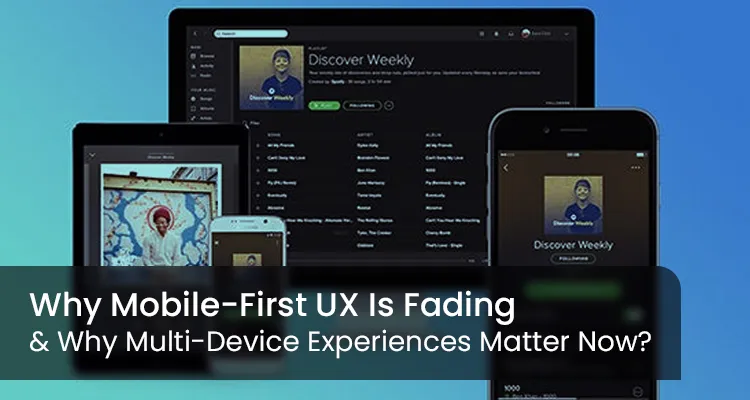How to Rank in ChatGPT: SEO Strategies That Actually Work

The terrain of SEO is changing swiftly. Brands, content producers, and marketers are grappling with a major dilemma as artificial intelligence tools like ChatGPT become more embedded into people’s information search: How do you get your material featured in ChatGPT replies?
Though there is no formal guidebook or secret algorithm—yet—there are techniques to improve the likelihood of your material being cited by artificial intelligence tools like ChatGPT. These are not “tricks”; rather, they are based on what excellent content and SEO have always been about: clarity, authority, and value.
Let’s break it down.
What Does “Ranking in ChatGPT” Even Mean?
First, let’s clarify something important: ChatGPT isn’t a search engine in the traditional sense. It doesn’t crawl the internet live for every query like Google does (unless you’re using a version with browsing enabled). Instead, it generates answers based on a vast pool of training data—this includes books, articles, websites, and structured public content. Some versions also access live data via Bing or integrated plugins.
So when people say “rank in ChatGPT,” what they’re really asking is:
How do I create content that gets referenced, mentioned, or summarized by ChatGPT when someone asks a question related to my niche?
The answer isn’t to stuff keywords or chase algorithms—it’s to create content that’s truly useful.
Why SEO Still Matters in the Age of AI
Just because the way users find content is changing doesn’t mean SEO is dead. In fact, SEO is more important than ever—it’s just shifting focus.
Here’s why:
- AI relies heavily on high-quality, well-structured content. If your site is known for producing reliable, insightful material, AI tools are more likely to include your content in their responses.
- Semantic SEO—which focuses on topics and intent rather than just keywords—is becoming the gold standard.
- Structured data and on-page optimization still help search engines (and AI models) understand your content better.
In essence, the foundation of great SEO—value, clarity, and relevance—is exactly what AI models are trained to prioritize.
What Kind of Content Does ChatGPT Pull From?
Content that gets surfaced by Artificial intelligence tools like ChatGPT tends to have a few common characteristics:
- Well-Researched – Citing studies, statistics, or expert opinions adds credibility.
- Clear and Conversational – AI loves content that’s easy to understand and answers questions directly.
- Structured – Bullet points, subheadings, FAQs, and concise paragraphs all make content more digestible.
- Updated and Relevant – Even AI models with limited browsing still value timely, current information.
- Topic Authority – Websites that consistently cover a topic in-depth are more likely to be referenced.
If you’re already creating strong, user-centric content, you’re on the right path.
7 SEO Strategies to Boost Visibility in ChatGPT Responses
While you can’t technically “optimize for ChatGPT,” you can improve your chances of being included in AI-generated answers with the right approach:
1. Focus on Natural Language Content
AI tools favor content that mirrors how people speak and ask questions. Use a conversational tone. Instead of stuffing in keywords like “best digital agency Delhi,” go for phrases like “What makes a digital agency great in 2025?”
2. Answer Questions Directly
One of the easiest ways to make your content AI-friendly is to write in Q&A format. Add an FAQ section at the end of your blogs or sprinkle clear, direct answers throughout.
3. Build Topical Authority
Rather than writing one-off articles, create a cluster of content around your core topic. Cover various angles—how-tos, explainers, trends, myths, and comparisons. This signals to AI that you’re a trustworthy voice in that domain.
4. Use Structured Data
Schema markup helps AI and search engines better understand what your page is about. For instance, using FAQ schema can improve how your page appears in both search and AI responses.
5. Write for Humans, Not Bots
The irony? To impress AI, write like a human. Focus on storytelling, empathy, clarity, and flow. Content that connects emotionally is not only more engaging—it’s also more likely to be quoted or summarized.
6. Keep It Fresh
AI models may not prioritize outdated pages. Update your content regularly, especially statistics, examples, and evolving trends.
7. Prioritize Readability
Use shorter paragraphs, bullet points, and clear headlines. Tools like Yoast and Hemingway can help optimize for readability—something AI models respond to as well.
Can You Track If ChatGPT Is Using Your Content?
This is where things get a little fuzzy. Unlike Google, there are no analytics or tracking tools (yet) that show if ChatGPT used your content to formulate an answer. However, indirect clues—like traffic spikes from AI-enabled tools, mentions, or user queries—may help.
As AI continues to evolve, tools may emerge to help brands understand how their content is being leveraged in generative contexts.
The Future of Search Is Hybrid
The days of relying solely on Google rankings are over. Today’s search landscape is hybrid—users get information from a mix of traditional engines, AI assistants, social media platforms, and even voice search.
If you’re a business or content creator, the smartest move is to future-proof your SEO strategy by embracing this multi-channel reality.
That means:
- Writing for humans and machines
- Creating evergreen + timely content
- Being a trusted voice in your niche
You don’t need to overhaul everything overnight. Start by refining your existing content using the principles above. With time, your work will not only rank better in Google—but may also become the kind of content that AI models recognize and surface.
Final Takeaway
There’s no magic formula to ranking in ChatGPT. But there’s a clear path: create better content.
When you put the reader first, write with clarity, and focus on sharing genuine value, your content becomes more than just another blog post—it becomes useful. And useful content, whether it’s found by Google, shared on social media, or referenced by AI, always wins.
Content written by-Tanya
Tanya is part of the expert content marketing team at ITCombine. She has an expertise of curating meaningful information that can be used by visitors in general. Tanya is also involved in creating Client specific stories and blogs.
Copyright © 2025 - itcombine.com.
All Rights Reserved.








